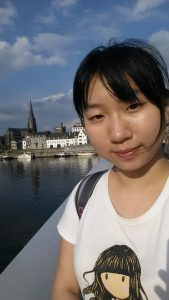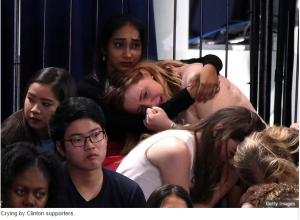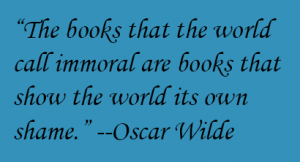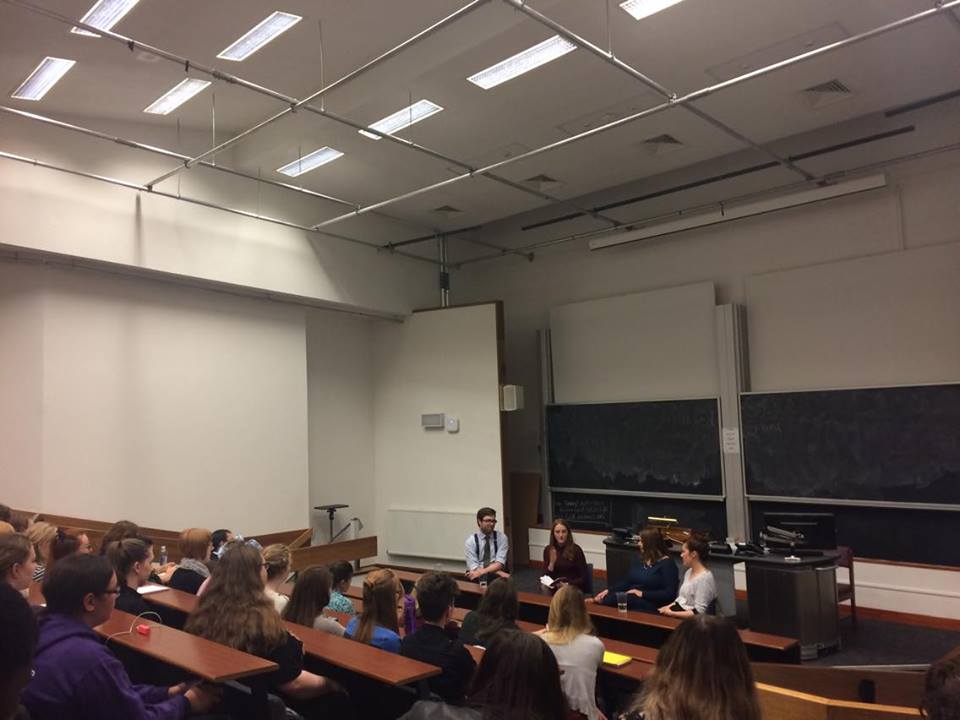
Adrian Searle is Publisher at Glasgow-based Freight Books and Director of sister company Freight Design. He is also founding co-editor of Scotland’s leading literary magazine, Gutter and holds degrees in History and Creative Writing, obtained at the University of Edinburgh and the University of Glasgow respectively.
On the 26th of October 2016, students and members of the public had the chance to hear Searle discuss publishing matters at the University of Strathclyde as part of the ongoing Nuts and Bolts guest speaker series. In the space of an hour Searle offered up a great deal of insight in to both Freight Books and publishing in general.
Some highlights follow.
On the timely arrival of Gutter
For those unfamiliar, Gutter is a boundary-pushing and award-winning literary magazine published by Freight Books which focuses on new Scottish writing. The 15th issue has just recently been released.
Why has Gutter been so successful? It partly boils down to timing. The magazine launched during an industry slump which prompted many publishers, particularly in England, to ruthlessly exorcise any immediately unprofitable talent from their lists.
Adopting a more venturous approach, Gutter thrived by drawing on the growing pool of artists seeking out viable and more welcoming channels for their work.
On vision, insight and the challenges of standard practice
Searle puts forth the notion that publishing works best when the whole process takes lead from an individual’s clear and focused vision, although he also attests to the need for a solid sounding board – he and AyeWrite! programmer Bob McDevitt have indulged in plenty of shop talk over games of squash.
Technically an “outsider” to the industry, Searle has held multiple roles in marketing and business development out with the publishing sector – enabling him to astutely pinpoint that the publishing industry continues to be beset by not-quite-optimized standard practice models within distribution, selling, returns and printing.
On the risks of a literary focus
Searle affirms that the publishing of literature, particularly literary fiction and poetry, is a labour of love and at times very much a luxury.
For as much pleasure and pride as there is to be gained in publishing Searle stresses repeatedly that, above all else, publishing is a business and a tough one at that. In divulging a 1 in 7 strike rate for profitability in fiction publishing, Searle makes it clear that you simply cannot eradicate risk in this industry, but that you should still seek to defend against it.
The answer for Freight Books has been to develop a diverse list and an appreciation for the need to simultaneously embrace what we continue to refer to as high and low brow culture. In addition to publishing literary fiction, Freight Books have wisely entered the burgeoning humour market with titles such as 101 Uses for a Dead Kindle, which Searle himself authored. A point of pride I’m sure, for sub-rights were later sold to Verlagsgruppe Random House and the publication received favourable attention from the German weekly news magazine, Stern.
On the tricky business of marketing Scottish literature
Searle made it clear that marketing Scottish literature can be a complicated and often frustrating task. Freight Books have an impressively diverse list of authors and titles, but they are undeniably a Scottish publisher with a plethora of identifiably Scottish titles.
Problematically, many parties – at home and abroad – readily compartmentalize Scottish identities and knowingly cultivate and capitalize on the prevailing clichés of our times.
Generally speaking, we should pause to deliberate over the ways in which Scottish identities are broadcast across the world stage. Within the publishing industry itself, the whole messy business of harnessing stereotypical national identities can be a bit of a double-edged sword.
For example, a title with a strong local focus – say a crime novel set in Glasgow – can welcomingly drive sales in that respective locale.
In another instance, many readers and publishing houses will willingly accept titles that fit comfortably in to pre-existing schemas for Scottishness – the most prevalent two being the gritty tartan-noir novel or the drug and profanity fueled Welshian narrative.
As to any deviations? Well, sadly the fix for such titles is to avoid branding them as overtly Scottish in a bid to render them in a robustly marketable light – at least until any potential literary awards can be obtained, which may absurdly help to mitigate any undeserved backlash towards issues of national identity.
Strathclyde’s Nuts and Bolts lecture series continues in the Lord Hope Building, Room 228 on the 9th of November at 1pm. Visiting speaker is award-winning novelist Cathy Forde. All are welcome and the event is free, non-ticketed.
by Danny Frew










